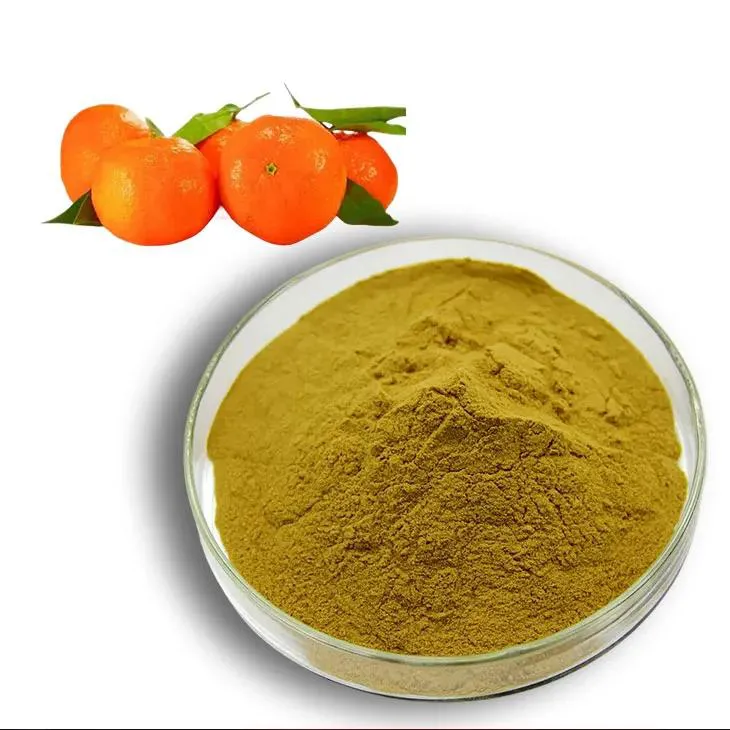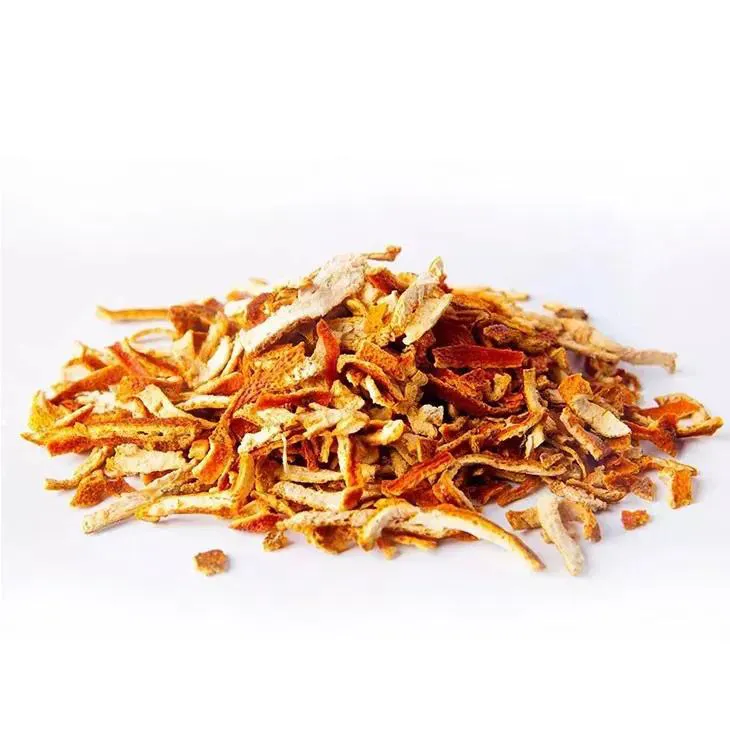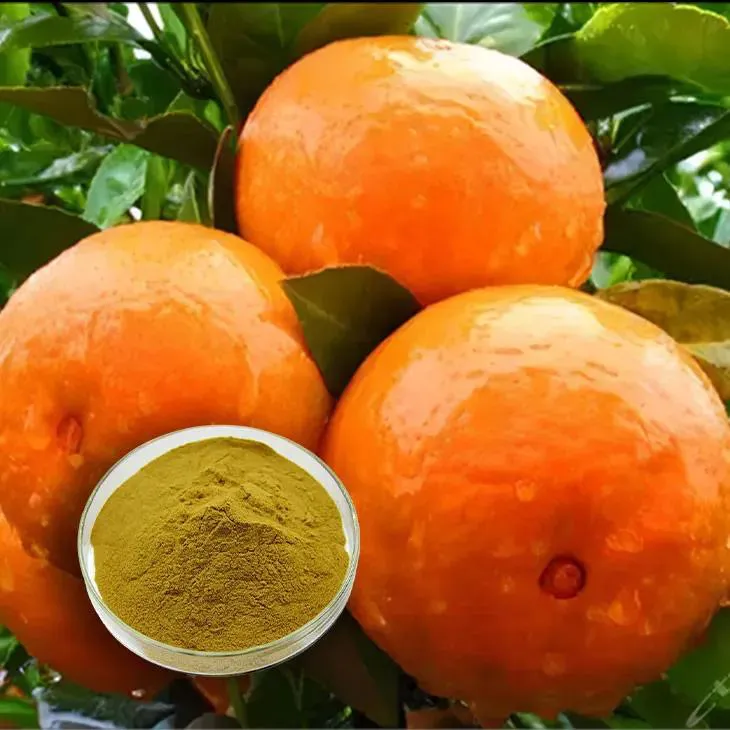- 0086-571-85302990
- sales@greenskybio.com
Eight Effects of Citrus Bioflavonoids on Skin Glow.
2024-11-13

1. Introduction to Citrus bioflavonoids
Citrus bioflavonoids are a group of plant - based compounds found abundantly in citrus fruits such as oranges, lemons, and grapefruits. These bioactive substances have been the focus of numerous scientific studies in recent years, especially in the realm of skincare. They possess a wide range of properties that can contribute to healthy and glowing skin.

2. Anti - Inflammatory Properties
2.1 Reducing Skin Redness
One of the primary benefits of Citrus bioflavonoids for the skin is their anti - inflammatory effect. Inflammation can lead to skin redness, which is often an indication of an underlying skin issue. Citrus bioflavonoids work by suppressing the body's inflammatory response at the skin level. For example, they can inhibit the production of pro - inflammatory cytokines, which are molecules that play a key role in promoting inflammation. By reducing the levels of these cytokines, citrus bioflavonoids can help to minimize skin redness, giving the skin a more even - toned appearance.
2.2 Soothing Irritated Skin
Many factors can irritate the skin, including environmental pollutants, harsh chemicals in skincare products, and allergens. When the skin is irritated, it can become itchy, dry, and uncomfortable. Citrus bioflavonoids have the ability to soothe irritated skin. They act as a natural calming agent, providing relief to the skin. This is especially beneficial for those with sensitive skin types, as it can help to reduce the frequency and severity of skin flare - ups.

3. Skin - Brightening Effects
3.1 Inhibiting Melanin Production
Melanin is the pigment responsible for the color of our skin. Excessive melanin production can lead to dark spots, hyperpigmentation, and an overall dull complexion. Citrus bioflavonoids can inhibit the production of melanin in the skin. They do this by interfering with the enzymatic processes involved in melanin synthesis. By reducing melanin production, these bioflavonoids can help to lighten dark spots and even out skin tone, resulting in a brighter and more radiant complexion.
3.2 Promoting Skin Cell Turnover
The skin is constantly renewing itself through a process called skin cell turnover. However, as we age or due to certain environmental factors, this process can slow down. Citrus bioflavonoids can stimulate skin cell turnover, which means that old, dull skin cells are shed more quickly and replaced with new, healthy cells. This leads to a fresher - looking skin surface, with improved texture and a natural glow.

4. Antioxidant Protection
4.1 Neutralizing Free Radicals
Free radicals are unstable molecules that are constantly present in our environment and are generated within our bodies as a result of normal metabolic processes. These free radicals can cause oxidative stress to the skin, which is associated with premature aging, wrinkles, and a loss of skin elasticity. Citrus bioflavonoids are powerful antioxidants that can neutralize free radicals. They donate electrons to these unstable molecules, thereby stabilizing them and preventing them from causing damage to the skin cells. This antioxidant protection helps to keep the skin looking youthful and healthy.
4.2 Protecting Against Environmental Damage
Our skin is constantly exposed to environmental aggressors such as UV radiation, pollution, and cigarette smoke. These factors can all contribute to skin damage and a decline in skin quality. Citrus bioflavonoids act as a shield against such environmental damage. Their antioxidant properties help to counteract the harmful effects of these external factors, reducing the risk of skin problems such as sunspots, premature wrinkling, and a dull complexion.
5. Hydration and Moisture Retention
5.1 Improving Skin Barrier Function
The skin barrier is crucial for maintaining proper skin hydration. It prevents water loss from the skin and keeps out harmful substances. Citrus bioflavonoids can enhance the skin barrier function. They help to strengthen the lipid layer of the skin, which is an important part of the skin barrier. By improving the skin barrier, these bioflavonoids can reduce transepidermal water loss, keeping the skin hydrated for longer periods.
5.2 Binding Moisture in the Skin
In addition to improving the skin barrier, citrus bioflavonoids can also bind moisture within the skin. They have a hydrophilic nature, which means they can attract and hold water molecules. This helps to keep the skin moisturized from within, giving it a plump and supple appearance. Well - hydrated skin is more likely to have a healthy glow, as it reflects light better.
6. Anti - Aging Benefits
6.1 Reducing Wrinkles and Fine Lines
As mentioned earlier, citrus bioflavonoids' antioxidant properties protect the skin from oxidative stress, which is a major contributor to the formation of wrinkles and fine lines. By neutralizing free radicals, they prevent the breakdown of collagen and elastin fibers in the skin. Collagen and elastin are essential for maintaining skin elasticity and firmness. With continued protection from citrus bioflavonoids, the skin is less likely to develop wrinkles and fine lines, resulting in a more youthful appearance.
6.2 Improving Skin Firmness
Citrus bioflavonoids also play a role in improving skin firmness. They can stimulate the production of collagen, which is the main structural protein in the skin. As we age, collagen production naturally declines, leading to sagging skin. By promoting collagen synthesis, citrus bioflavonoids can help to tighten the skin and restore its firmness, giving it a more lifted and toned look.
7. Acne Prevention and Treatment
7.1 Controlling Sebum Production
Excessive sebum production is one of the main causes of acne. Sebum is an oily substance produced by the sebaceous glands in the skin. Citrus bioflavonoids can regulate sebum production. They work by modulating the activity of the sebaceous glands, preventing them from over - producing sebum. By controlling sebum levels, these bioflavonoids can reduce the likelihood of clogged pores, which is a precursor to acne breakouts.
7.2 Anti - Bacterial Effects
Acne is also associated with the presence of bacteria on the skin. Citrus bioflavonoids have antibacterial properties that can help to combat the bacteria that contribute to acne. They can inhibit the growth and proliferation of acne - causing bacteria such as Propionibacterium acnes. This dual action of controlling sebum production and fighting bacteria makes citrus bioflavonoids a valuable ingredient in acne prevention and treatment.
8. Overall Skin Health Promotion
8.1 Boosting Immune Function in the Skin
The skin has its own immune system, which is responsible for protecting the skin from infections and other threats. Citrus bioflavonoids can enhance the immune function of the skin. They can stimulate the activity of immune cells in the skin, such as macrophages and lymphocytes. These immune cells play a crucial role in identifying and eliminating foreign invaders and damaged cells from the skin. By boosting the skin's immune system, citrus bioflavonoids contribute to overall skin health and resilience.
8.2 Reducing Stress - Induced Skin Issues
Stress can have a negative impact on the skin, leading to problems such as breakouts, dullness, and premature aging. Citrus bioflavonoids can help to counteract the effects of stress on the skin. They work by reducing the production of stress hormones in the body, which can otherwise disrupt the skin's normal functioning. By reducing stress - induced skin issues, these bioflavonoids help to maintain a healthy and glowing complexion.
9. Incorporating Citrus Bioflavonoids into Skincare
Citrus bioflavonoids can be incorporated into skincare in several ways. One option is to use skincare products that contain citrus bioflavonoid extracts. These products can include creams, serums, and masks. Another way is to consume citrus fruits regularly as part of a healthy diet. This provides the body with a natural source of these beneficial bioflavonoids, which can then have a positive impact on the skin from within. However, it's important to note that if you have sensitive skin or are allergic to citrus fruits, you should consult a dermatologist before using products containing citrus bioflavonoids or increasing your citrus fruit intake.
FAQ:
What are citrus bioflavonoids?
Citrus bioflavonoids are a group of plant - based compounds found in citrus fruits such as oranges, lemons, and grapefruits. They are known for their antioxidant and anti - inflammatory properties, which can be beneficial for the skin.
How do citrus bioflavonoids contribute to skin glow?
Citrus bioflavonoids contribute to skin glow in multiple ways. Firstly, their antioxidant properties help to fight free radicals that can damage skin cells and cause dullness. Secondly, they can reduce inflammation, which can lead to a more even skin tone. Additionally, they may also stimulate collagen production, which can improve skin elasticity and give the skin a healthy, glowing appearance.
Can citrus bioflavonoids reduce skin inflammation?
Yes, citrus bioflavonoids can reduce skin inflammation. Their anti - inflammatory properties help to soothe irritated skin, reduce redness, and calm down any inflammatory responses in the skin. This can be particularly beneficial for those with sensitive or acne - prone skin.
Are there any side effects of using citrus bioflavonoids on the skin?
For most people, using citrus bioflavonoids on the skin is safe. However, some individuals may be allergic to citrus fruits and may experience an allergic reaction. It is always recommended to do a patch test before using any new skincare product containing citrus bioflavonoids. Also, over - use or improper use may potentially cause skin irritation.
How can one incorporate citrus bioflavonoids into their skincare routine?
There are several ways to incorporate citrus bioflavonoids into your skincare routine. You can use skincare products that contain citrus bioflavonoids, such as creams, serums, or masks. Another option is to make your own DIY skincare products using citrus fruits or extracts. However, when making DIY products, it is important to ensure proper handling and storage to avoid contamination.
Related literature
- The Role of Citrus Bioflavonoids in Skin Health and Disease"
- "Antioxidant and Anti - Inflammatory Effects of Citrus Bioflavonoids in Skincare"
- "Citrus Bioflavonoids: A Natural Approach to Skin Glow"
- ▶ Hesperidin
- ▶ citrus bioflavonoids
- ▶ plant extract
- ▶ lycopene
- ▶ Diosmin
- ▶ Grape seed extract
- ▶ Sea buckthorn Juice Powder
- ▶ Beetroot powder
- ▶ Hops Extract
- ▶ Artichoke Extract
- ▶ Reishi mushroom extract
- ▶ Astaxanthin
- ▶ Green Tea Extract
- ▶ Curcumin Extract
- ▶ Horse Chestnut Extract
- ▶ Other Problems
- ▶ Boswellia Serrata Extract
- ▶ Resveratrol Extract
- ▶ Marigold Extract
- ▶ Grape Leaf Extract
- ▶ blog3
- ▶ blog4
- ▶ blog5
-
Organic Tongkat Ali extract powder factory.
2024-11-13
-
How to make powder with ashwagandha extract.
2024-11-13
-
Rosehip extract manufacturers from China.
2024-11-13
-
The best cat's claw extract in nature.
2024-11-13
-
Chinese Dandelion Leaf Extract Suppliers.
2024-11-13
-
Epimedium extract powder
2024-11-13
-
Berberis aristata Extract
2024-11-13
-
Polygonum Cuspidatum Extract
2024-11-13
-
Hawthorn powder
2024-11-13
-
Coconut Water Powder
2024-11-13
-
Shikonin
2024-11-13
-
Camu Camu Extract
2024-11-13
-
Resveratrol extract
2024-11-13
-
Acai Berry Extract
2024-11-13
-
Rosemary extract
2024-11-13





















